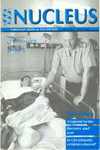As Christians, we have a responsibility to exert a strong moral influence on our society’s approach to war as well as having to decide whether we should fight ourselves. Now is the time, with the luxury of relative peace, to think through the principles on which to make this assessment from a biblical basis.
Should Christians ever use force at home or abroad to keep the peace and maintain justice? The Bible is not explicit about this. As on many issues, the Bible does not set out simple rules. It leaves us, through the Holy Spirit, to draw wise conclusions from what it teaches about God’s nature, purposes, and the earthly context in which he has placed us. Christians generally divide into two groups: Pacifists and Advocates of Just War.
Pacifism
Pacificists believe that Christians are never called to exert force that might lead to death in order to maintain civil or military authority. In the Sermon on the Mount (Mt 5:38-48) Jesus tells us how we should respond to our enemies. He advocates a loving response to those who plan evil things against us, most poignantly expressed in praying for them. And why? In this passage Jesus gives us two reasons. God showers blessing indiscriminately on his friends and foes alike and so should we (v45). And in order to be witnesses to the genuineness of his love in us, we need to separate our duty to love others from the expectation of personal gain or relief from discomfort (v46).
So this seems clear. As Christians, we cannot expect to establish God’s kingdom through physical force and we need to reject any temptation to retaliate in an attitude of revenge when threatened with physical force ourselves. Most Pacifists would rest their case there.
The ‘Just War’ criteria
However, others believe that limited force is required at certain times, to deal with both internal and external potential threats to peace and justice. The biblical case for this comes from Romans 13:4 where God’s instated authorities have permission to bear the sword within their society.1 When the threat is external, this force should be limited to ensure that only a ‘just war’ is fought. The following criteria were developed in the middle-ages to help individuals and authorities assess whether war was ‘just’; and thereby to limit war wherever possible:
Engaging in war
- By a legitimate authority
- As a last resort (after an ultimatum and after all other avenues for resolution have been exhausted)
- LWith just cause (God’s rules being broken)
- With right motives (the restoration of God’s rules in a peaceful context)
Conducting war
- Discriminate
- Proportionate (use of minimum force wherever possible)
In any ‘just war’ assessment we are at the mercy of limited or inaccurate information. We simply have to make the wisest decision we can at the time with the knowledge we have and trust God’s grace. Often a war and its justness will evolve rapidly, as will the information open to us, so regular reassessment is essential.
Applying the ‘Just War’ criteria today
How do the Just War criteria affect the real war-filled world? At the end of my seminar at the CMF UK National Students’ Conference 2000 I tried to apply the Just War criteria to the recent Kosovan conflict. I had come to the tentative conclusion that it was one of the more just wars that this country had been involved in. I was unaware that a Serbian student had been sitting the front row. She, too, along with her Christian colleagues, had also had to decide whether the war was just. Her assessment was a personal one and so must it be for all of us. It was based, like mine, on what the media said and what the government allowed the media to know. However, she had come to quite the opposite conclusion to mine, considering her country’s stance to be in the right and she had agreed to be called up. She was also aware that the decision to fight in the conflict could easily lead her to end up fighting her Christian brothers and sisters. It illustrates one painful fact of war which will be true for every Christian; that we will end up fighting those towards whom we do not (and must not) bear personal hatred.
Conclusion
There may be legitimate reasons for Christians to fight in a war based on a personal assessment of the justness of the situation and in this regard the ‘Just War’ criteria are an essential guide. Nowadays with wars changing rapidly in nature from day to day this assessment will have to be carefully based on all the available information, and repeated regularly. Taking part in a war should never be an excuse for hatred but rather an opportunity to love and pray for our enemies. Deciding that a war is no longer just will mean withdrawing from combat. In the middle of a war this will often be a courageous decision with huge personal consequences. Fighting on may be much easier. However, in all our actions we are ultimately answerable to our Lord and obedience to him must come first.
































